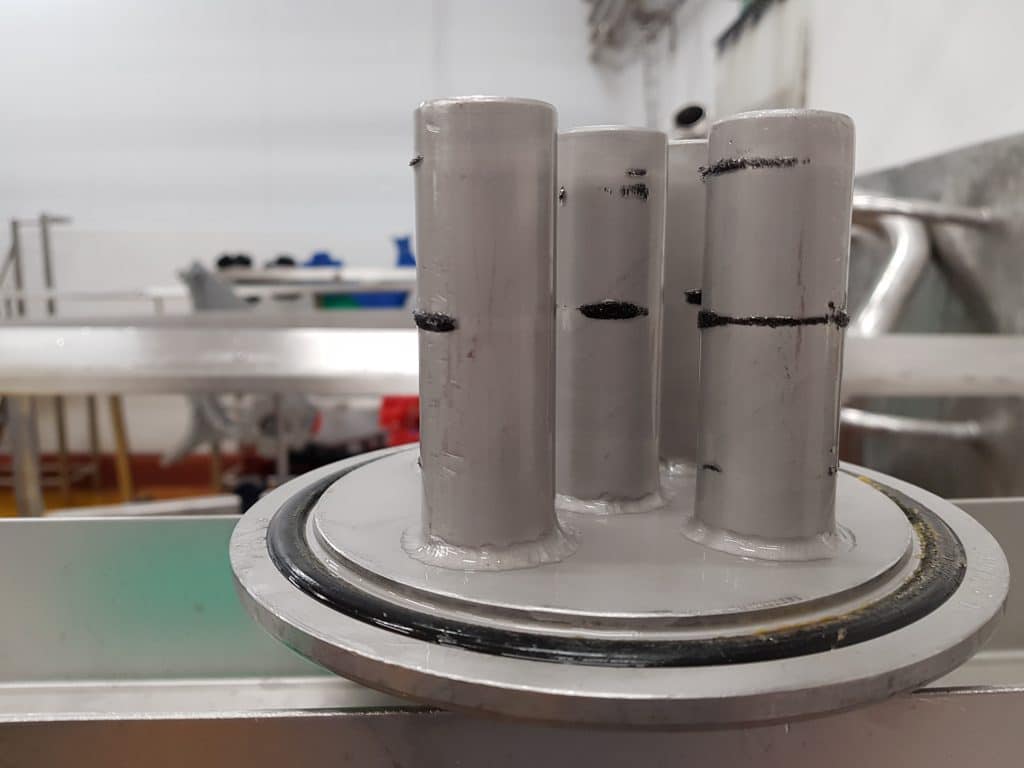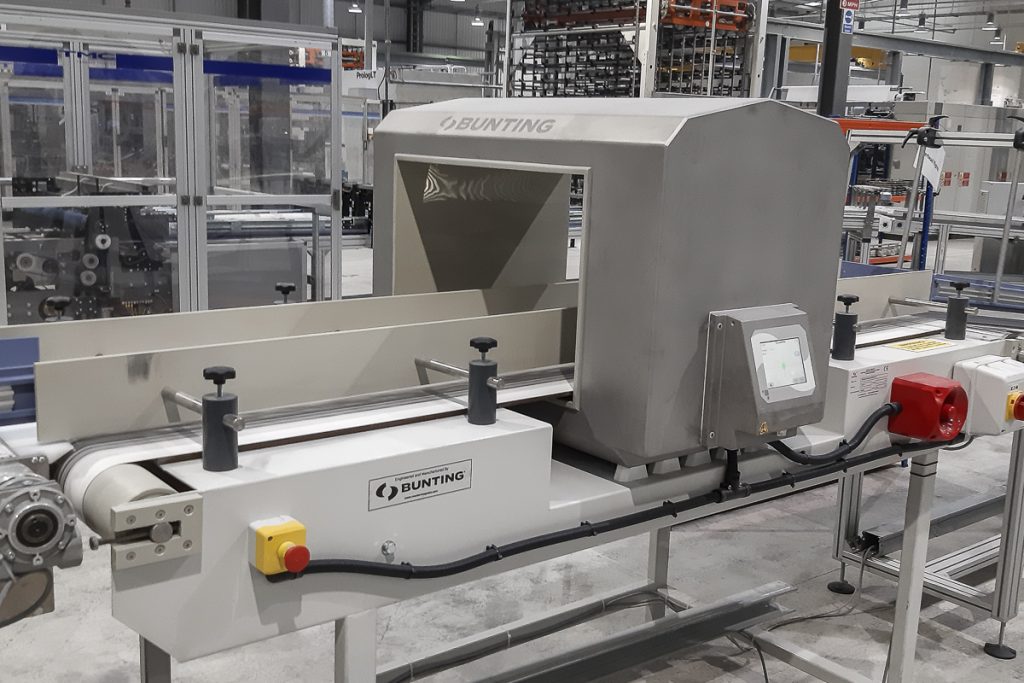Metal In Food Alerts 2022
By Paul Fears | 23 January 2023
In 2022, the UK Food Standards Agency issued ten (10) alerts regarding metal-contaminated food products that had reached the public. This was up from five (5) in 2021. The metal-contaminated food products were supplied by companies at various stages in the food supply chain, including leading UK supermarkets such as Tesco and Co-Op, as well as retailers Superdrug. The alerts warned consumers not to consume the contaminated food products and return them.
How Does Metal Contamination Occur?
Food is commonly contaminated with metal during the manufacturing process. Wear and failure of processing equipment can introduce rogue items of metal into the process and unless there is sufficient metal removal and detection equipment in place, the contaminated product will reach the consumer. If such products are consumed, metal contamination can cause mouth and throat lacerations, and damage teeth.

Metal Contaminated Products
The metal-contaminated products included baked goods, drinks, canned food, and pet food. The exact nature and origin of the metal contamination are unknown. However, in all cases, the cost in terms of reputation and product recall is substantial.
Removing and Detecting Metal Contamination
Most food processing plants feature systems to remove and identify metal contamination prior to the product leaving the premises. During the manufacturing process, magnetic separators attract and securely hold any ferrous metal or magnetically susceptible plastic contamination. To maximise metal capture, most of the magnetic separators use ultra-strong rare earth magnets (neodymium or samarium cobalt).
The most commonly used designs of magnetic separators include:
- Liquid Pipeline Magnets
- Tube and Grid Magnets
- Plate Magnets
- Inline Magnets
- Bullet Magnets
- Drawer Filter Magnets
Although metal detectors feature in the food manufacturing process, they are commonly located prior to and after packing. The high-sensitivity free-fall and tunnel-type metal detectors locate even the smallest ferrous or non-ferrous metal shard hidden in a food product and include:
- meTRON 07CI (tunnel-type for mounted around a conveyor)
- quickTRON 05A (free-fall and installed in the process and prior to packing)
- quickTRON 07 RH (free-fall and installed in the process and prior to packing)

Regular Auditing
Both the magnetic separators and metal detectors require regular auditing to confirm the performance meets the production requirements. Changes in the process, suppliers, and ingredients can all affect the performance and allow the metal to pass through into the final product.
Bunting engineers regularly conduct in-depth audits, physically checking the magnetic integrity of the magnetic separators and the sensitivity of the metal detectors. Following the onsite audit, a report is produced and forms part of any company’s ongoing process quality improvement plan.
Metal Contamination Food Alerts in 2022
- Almondy AB recalls Almondy Almond cake with Daim because it contains a piece of metal (19 December 2022)
- Superdrug recalls Slenderplan Tropical Smoothie Meal Replacement Shake because it may contain small pieces of metal (9 October 2022)
- Tesco recalls Tesco Active Strawberry Flavoured Whey Protein and Tesco Active Chocolate Fudge Flavoured Whey Protein because they may contain small pieces of metal (7 October 2022)
- Star Distribution (UK) recalls Karmen’s Cake Zone Sponge Cake because pieces of metal have been found in the product (16 August 2022
- Encore recalls Beef Selection in Gravy multipack dog food because packs may contain small pieces of metal (19 July 2022)
- PA Ross Ltd recalls Get Fresh at Home Petits Pains because they may contain small pieces of metal (9 June 2022)
- Co-op recalls Co-op Tuna Chunks in Sunflower Oil and Co-op Tuna Chunks in Springwater because they may contain pieces of metal (28 May 2022)
- Tesco recalls Tesco Chicken and Vegetable cup soup with croutons because it may contain small pieces of metal (14 April 2022)
- Tesco recalls Tesco Free from Digestive Biscuits because they may contain small pieces of metal (8 April 2022)
- Yoplait UK recalls Yoplait Frubes Variety Pack because it may contain small pieces of metal (12 January 2022)
Related Metal-in-Food Technical Articles
For further information on Metal Detectors and Magnetic Separators used to find and remove metal contamination in any food processing application, please visit our website or contact us on:
Email: Gordon Kerr at GKerr@buntingmagnetics.com
Telephone: +44 (0) 1527 65858
For further information or to discuss a specific project, please complete the following form